© 2025 MJH Life Sciences™ , Patient Care Online – Primary Care News and Clinical Resources. All rights reserved.
3 Things Your COPD Patients May Not Tell You
"I'm having trouble catching my breath." "I can't pay for my inhaler." "I'm just so sad." They may not tell us, so we need to ask. Here's my experience.
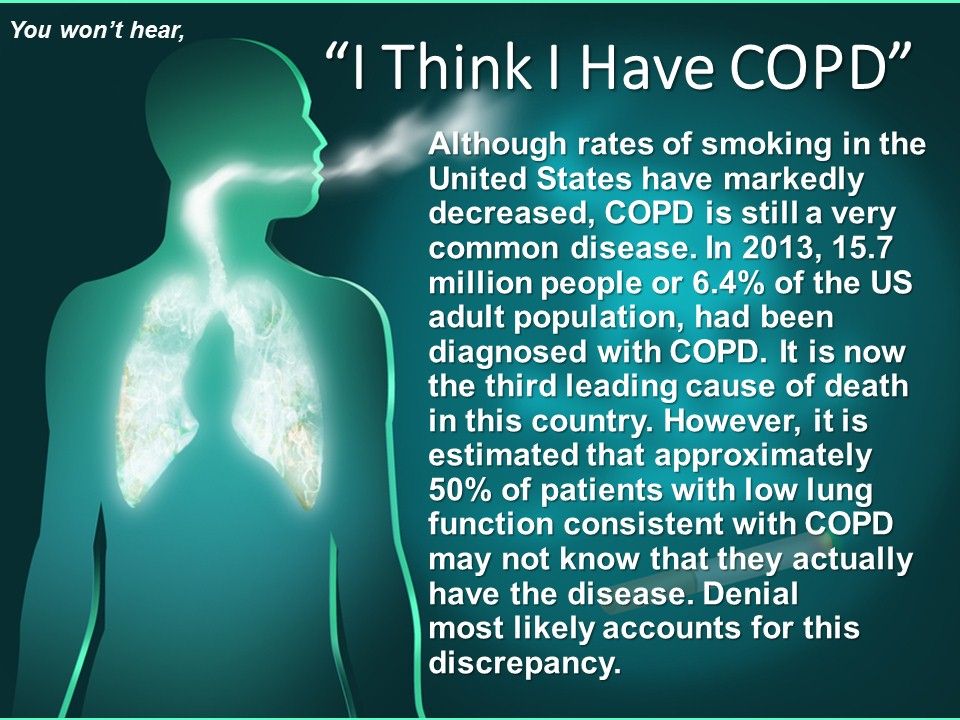
COPD is now the third leading cause of death in this country. However, it is estimated that approximately 50% of patients with low lung function consistent with COPD may not know that they actually have the disease.
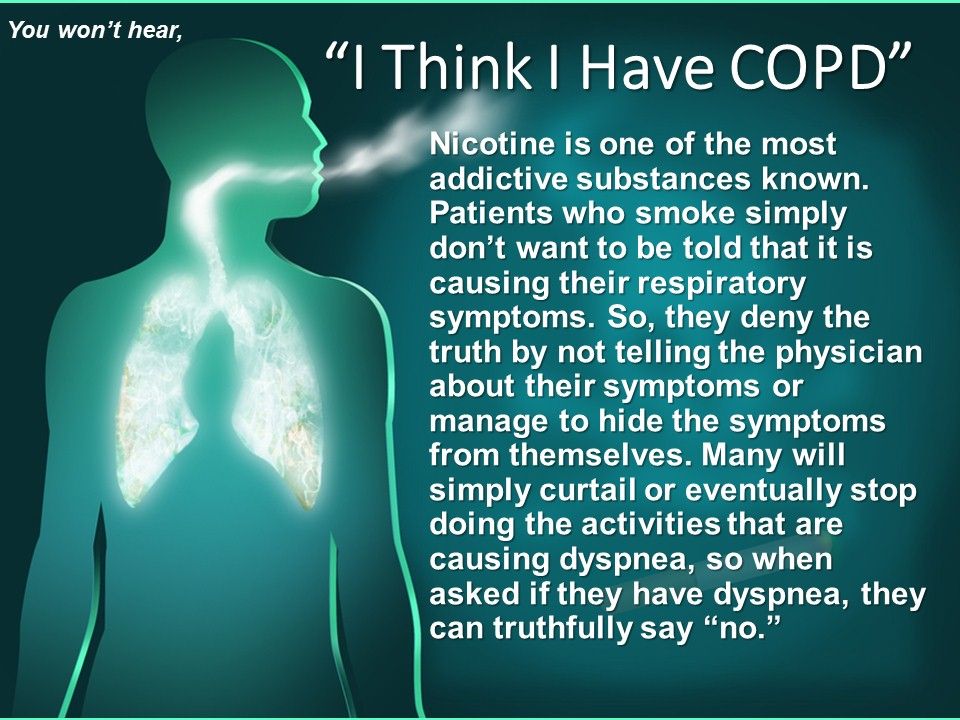
Patients who smoke simply don’t want to be told that it is causing their respiratory symptoms. So, they deny the truth by not telling the physician about their symptoms or manage to hide the symptoms from themselves.
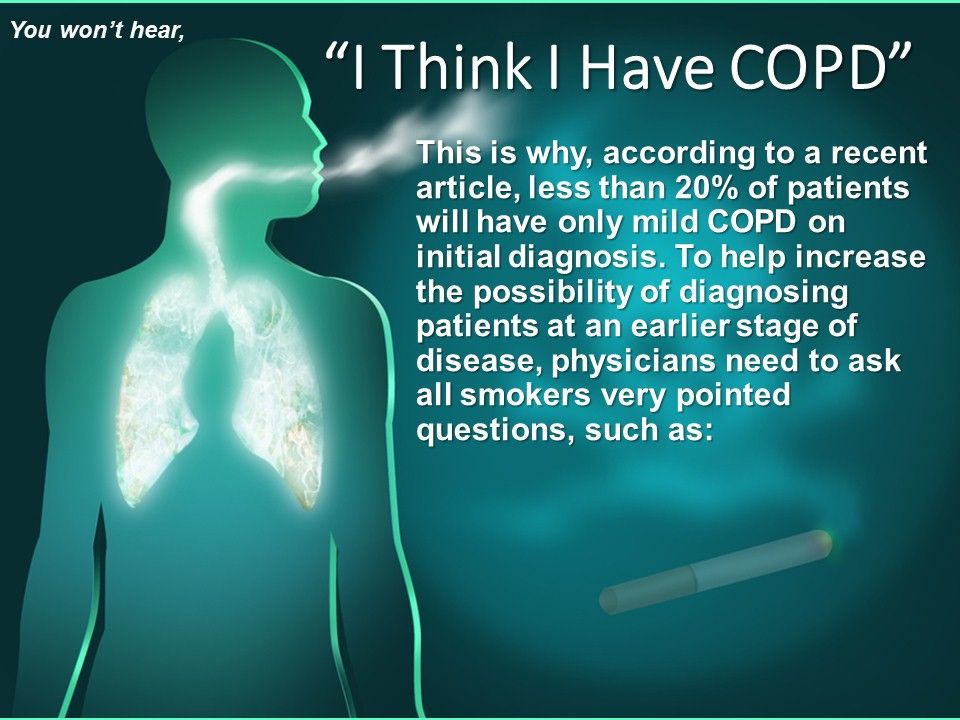
To help increase the possibility of diagnosing patients at an earlier stage of disease, physicians need to ask all smokers very pointed questions.
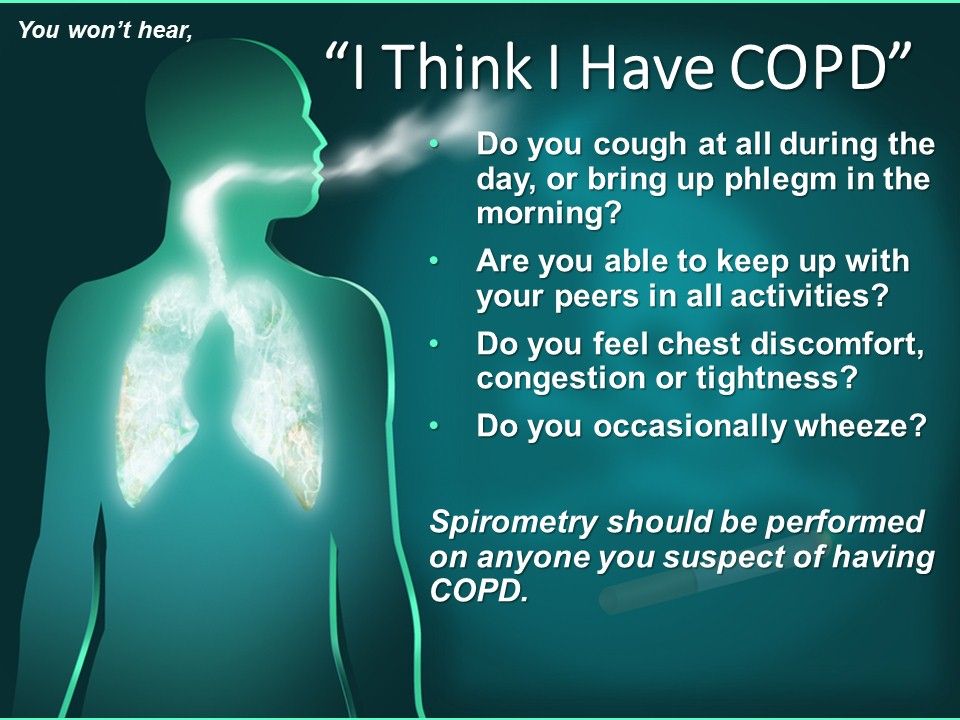
The most important questions to ask are: Do you cough at all during the day, or bring up phlegm in the morning? Are you able to keep up with your peers in all activities? Do you feel chest discomfort, congestion or tightness? Do you occasionally wheeze? Spirometry should be performed on any patient you suspect may have COPD.
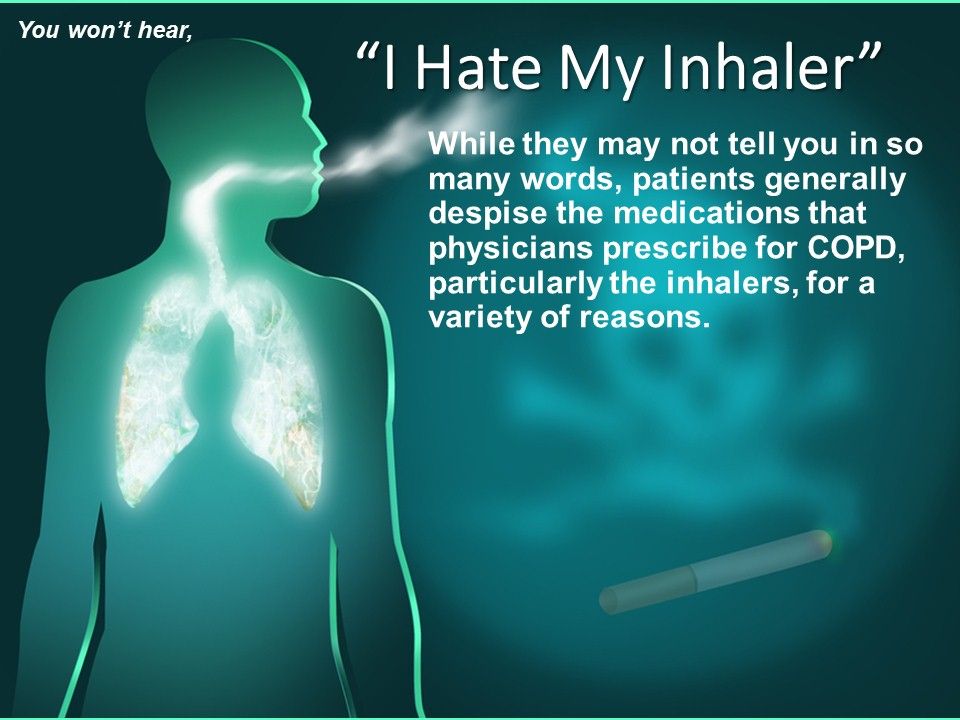
Most patients hate their inhalers, although they may not express the feeling in so many words. There are many reasons to be frustrated with the medication and the delivery vehicle.
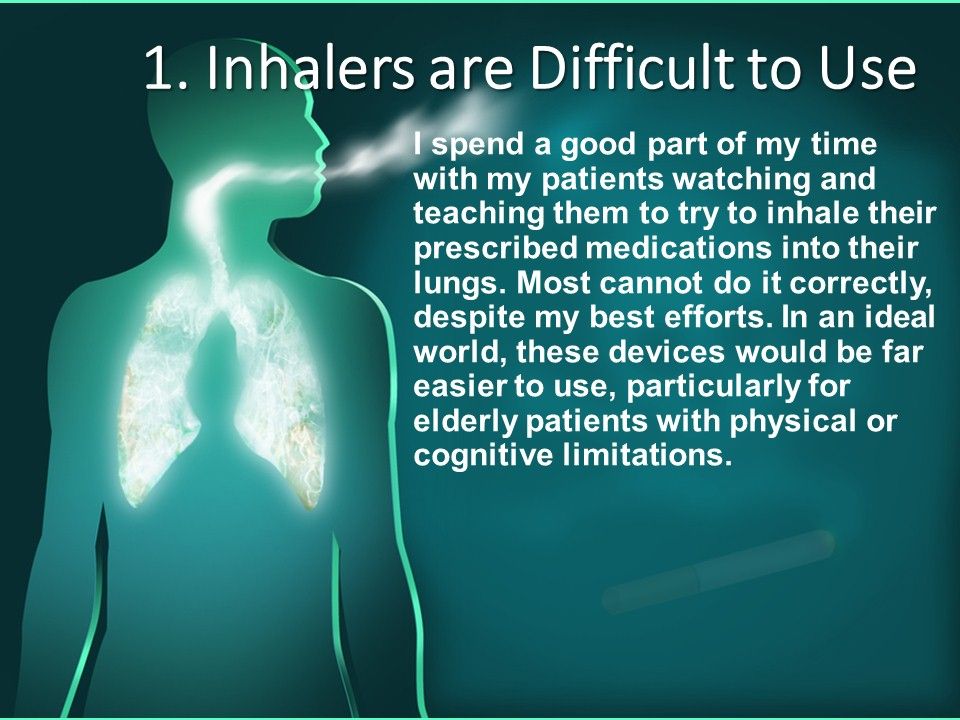
Inhalers are difficult to use. Most of my patients cannot correctly get the aerosolized medicine correctly into their lungs, despite my best efforts to instruct them.
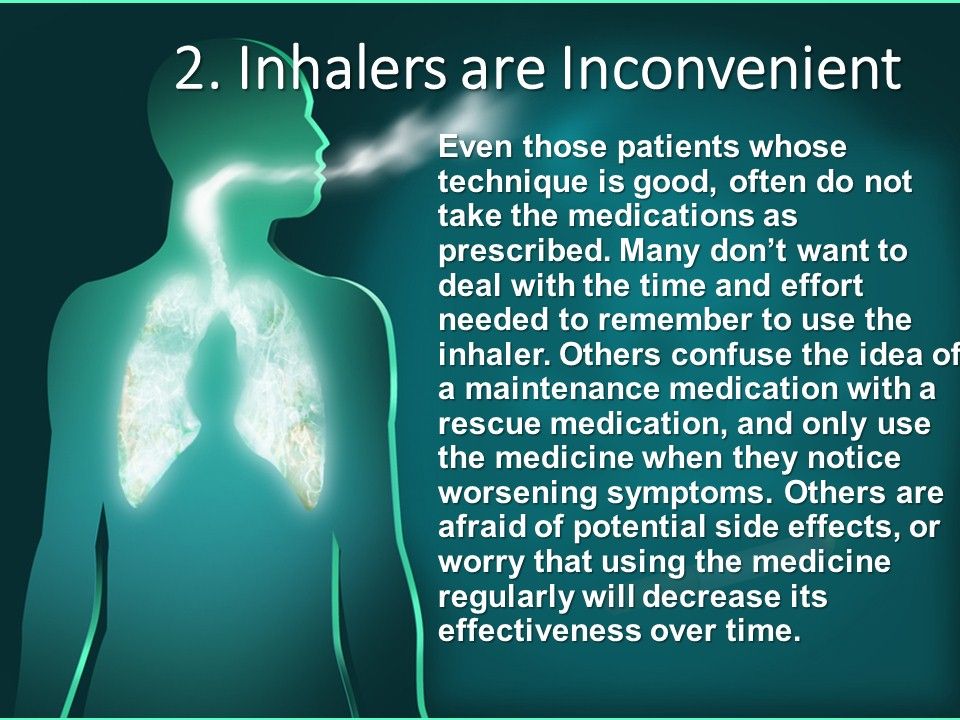
Inhalers are inconvenient. Even COPD patients with good technique may not adhere to prescribed use of inhalers. Some may confuse the idea of a maintenance medication with a rescue medication, and only use the medicine when they notice worsening symptoms
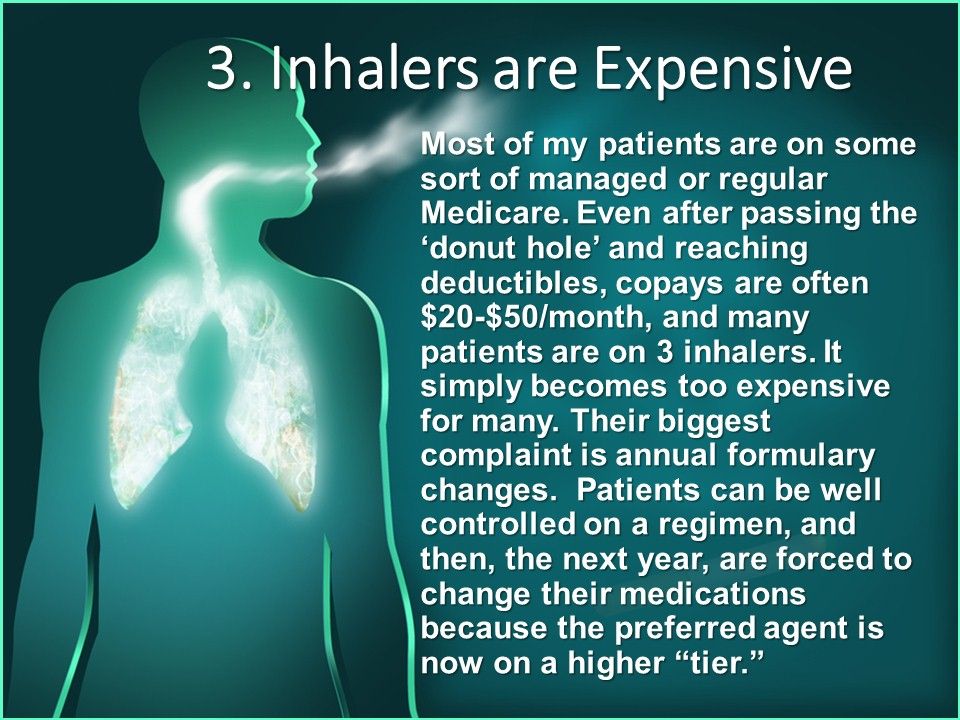
Inhalers are expensive. The biggest complaint I hear is about annual formulary changes. Patients can be well controlled on a regimen, and then, the next year, forced to change their medications because the preferred agent is now on a higher “tier.”
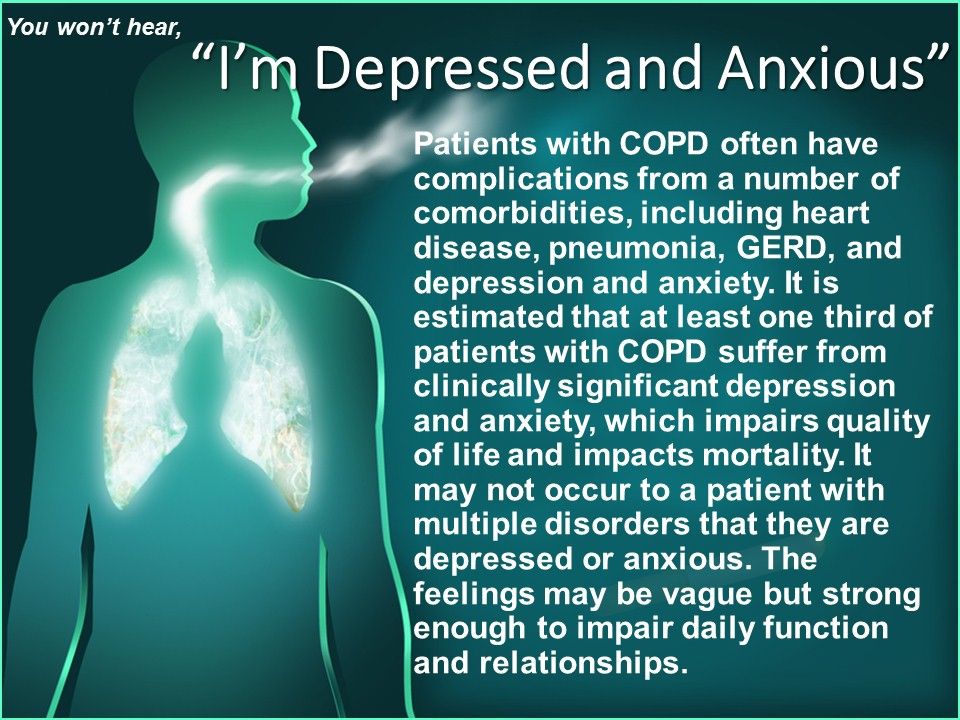
"I'm depressed and anxious." It is estimated that at least one third of patients with COPD suffer from clinically significant depression and anxiety, which impairs quality of life and impacts mortality. It may not occur to a patient that they are depressed or anxious. The feelings may be vague but strong enough to impair daily function and relationships.
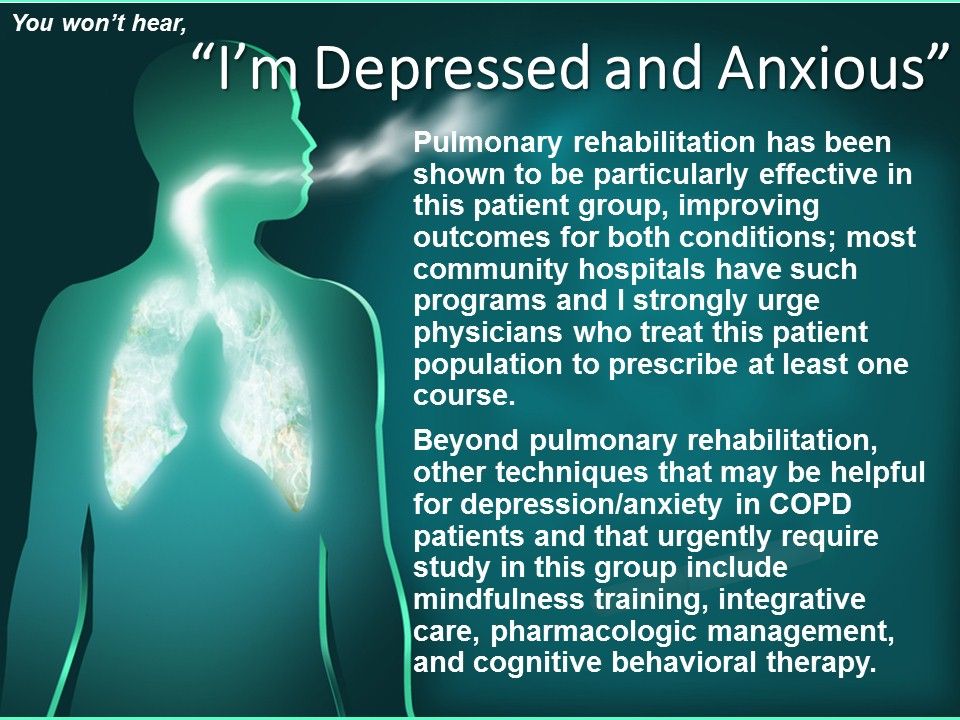
Pulmonary rehabilitation has been shown to be particularly effective in patients with COPD and anxiety/depression, improving outcomes for both conditions.
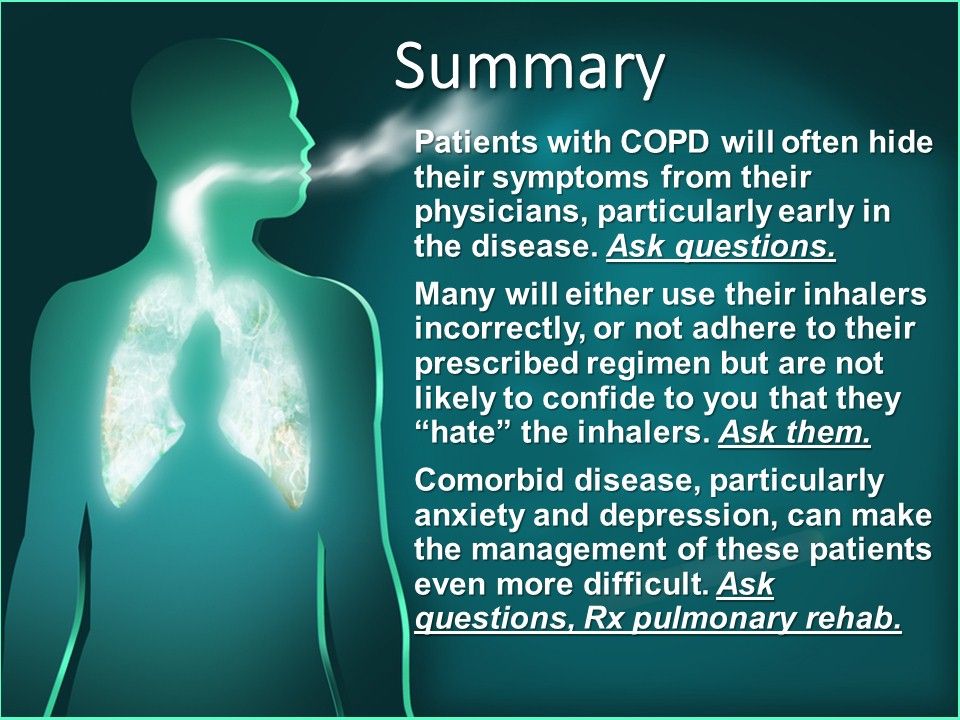
Summary. Patients with COPD will often hide their symptoms from their physicians, particularly early in the disease. Ask questions. Many will either use their inhalers incorrectly, or not adhere to their prescribed regimen but are not likely to confide to you that they “hate” the inhalers. Ask them.
Comorbid disease, particularly anxiety and depression, can make the management of these patients even more difficult. Ask questions, Rx pulmonary rehab.
In this short slide show, I've tried to look at COPD from a patient’s perspective, keeping in mind particularly the topics they may not be willing to talk about with a physician. I hope there is some insight here for the primary care physician who manages patients with this difficult disease.
Related Content:




